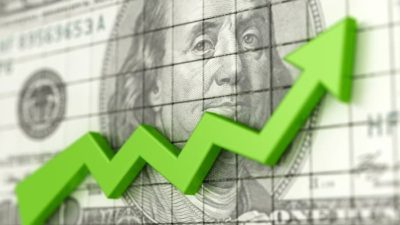This article is about two technology exchange-traded funds (ETFs) that are generating big returns.
What is an ETF?
I've already linked to a lengthy article covering ETFs, but in summary it's an investment vehicle that allows you to buy lots of businesses (or other assets) through a single investment, rather than needing to buy dozens or hundreds of businesses individually yourself.
Here are the tech funds
Betashares Nasdaq 100 ETF (ASX: NDQ)
BetaShares explains that the NASDAQ-100 comprises 100 of the largest non-financial companies listed on the NASDAQ market, and includes many companies that are at the forefront of the new economy.
Many people use one or more of the services of the 'FAANG' shares – Facebook, Apple, Amazon, Netflix and Google (Alphabet). Smartphones, googling something, watching some TV streamed over the internet, connecting with family on Facebook – all these are examples of something provided by a FAANG share.
The ETF gives exposure to some of the biggest businesses in the world including Apple, Microsoft, Amazon, Facebook, Alphabet, Tesla, Nvidia, Adobe, Netflix and PayPal.
Betashares Nasdaq 100 ETF has been one of the best-performing ETFs on the ASX over the past five years, returning an average of 19.8% per annum after fees. That return figure includes the annual management fee of 0.48% per annum.
However, this isn't just a tech ETF, although almost half of it is invested in the 'information technology' sector. Another 19.1% is invested in the communication services sector, then 18.9% is invested in consumer discretionary, 6.7% in healthcare, 4.7% is invested in consumer staples and the rest is invested in industrials and utilities.
Whilst many of its biggest positions don't pay dividends, the ETF usually pays two distributions each year. According to BetaShares, its 12-month trailing distribution amounts to a yield of 2.6%.
It's still rated as a buy by the Motley Fool Pro service.
Betashares Asia Technology Tigers ETF (ASX: ASIA)
According to BetaShares, this investment gives exposure to the 50 largest technology and online retail stocks in Asia (excluding Japan), including technology giants such as Alibaba, Tencent, Baidu and JD.com.
There are a couple of key reasons why BetaShares thinks investors may like this ETF.
Firstly, due to its younger, tech-savvy population, Asia is supposedly surpassing the West in terms of technological adoption and the sector is anticipated to remain a growth sector.
The other reason is that, with this one trade, BetaShares says investors get diversified exposure to a high-growth sector that is under-represented in the Australian share market, and a complement to investors with US technology exposure.
Here are the ETF's top 10 biggest holdings: Tencent, Meituan, Samsung Electronics, Taiwan Semiconductor Manufacturing, Alibaba, JD.com, Pinduoduo, Infosys, Netease and KE Holdings.
The ETF is newer than the NASDAQ one, but it's showing bigger returns as of right now. Since inception in September 2018, the ETF's net returns has been an average of 32% per annum. That return figure includes the annual management fee of 0.67% per annum.
The entire holdings may classified as 'technology', but BetaShares has broken it down into down sub-sectors. Around two thirds of the ETF is invested in internet and direct marketing retail, semiconductors and interactive media and services.
In terms of geographical diversification, around 55% of the ETF is allocated to Chinese businesses. A further 22.3% is invested in Taiwan, 16.3% is invested in South Korea and 6.1% is invested in India. The other 0.4% is invested in Hong Kong and other countries.
The Betashares Asia Technology Tigers ETF is still rated as a buy by the Motley Fool Extreme Opportunities service.







